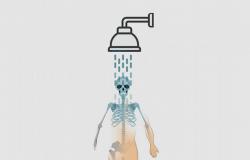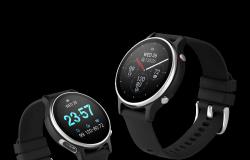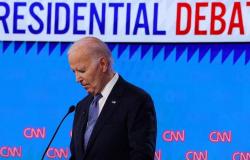Of the Barbados Agreement, signed between the Government of Nicolás Maduro and the Venezuelan opposition, only the date of the presidential elections remains standing, set within the second half of 2024. D-Day – July 28 – will, however, be reached , with democratic guarantees even worse than those of the last elections held in 2021 to choose governors and mayors. Everyone knows it and despite that, the people’s willingness to vote and the opposition’s willingness to continue on the electoral route persists no matter what happens. The withdrawal of electoral observation from the European Union has been the most recent. The Chavista authorities conditioned their presence on the total lifting of the sanctions against 50 officials and thus the plans to once again have a body of experts like the one they had three years ago were thwarted. The missions of the Carter Center and the UN are expected, but with resources much inferior to those of the EU.
The presence of the EU as an electoral observer has become a point of honor for the opposition, stripped of the possibility of registering the candidate it chose in primaries, María Corina Machado, which is why it was forced to register the substitute Edmundo González Urrutia , the second attempt after the brief fury of the first substitute, Corina Yoris. It has also been the case of the international community, particularly Brazil, which this week strongly urged Venezuela to open itself to broad international observation.
Opposition leader Machado continues clinging to her wealth of popularity that will be tested in the thorny terrain left by Chavismo. Although she was disqualified by the Supreme Court, she is the one who tours the country to ask her followers to vote for Edmundo González and demonstrates strength with the diminished mobilizations of Nicolás Maduro who has even tried to look like a rock star and has launched among the public at one of his events, carried by his bodyguards.
This week, Machado has insisted on asking the Government to rectify the decision to withdraw the invitation to the Europeans. “They are recognizing that they do not want to be observed. “I think it is a big mistake, I think it is something that should be reconsidered,” said the leader. “Why do they do it? What plans do you have? This is what they do not want international observers to see. We Venezuelans are not acting naively; “We know what we are facing: a process that is neither clean nor fair.” The opposition leader has also said that electoral observation can be done by Venezuelans themselves, for which she has created different forms of organization such as the commandos and the 600K network, to mobilize citizens on July 28 to defend the vote.
For electoral expert Griselda Colina, the negotiations are still open. The participation of EU observers is not closed, since more than lapses and organizational times the issue is political. In May, an advanced evaluation by the European mission was in Venezuela and confirmed that conditions are worse, but its presence could be key. “The negotiation is not closed. There are a series of guarantees that were raised in the Barbados Agreement and the process is moving forward despite the fact that those conditions have not been met, because people want it to move forward, because citizens have the ability to decide a destiny.”
Colina gives the example of 2021, where there was finally the presence of international observers through an agreement between the Government and the opposition, which made possible the formation of a more balanced National Electoral Council (CNE). That time the EU returned to Venezuela after 15 years of absence, five of which, between 2015 and 2020, Venezuelans attended elections without any type of international observation. At that time, Chavismo played alone against abstention, created a parallel Parliament and re-elected Maduro in elections that created the institutional crisis that led to an iron diplomatic and economic siege.
The lack of eyes on the process opens the way once again for him to use his electoral control. Outside the EU, the missions of the Carter Center and the UN panel of experts – whose reports are for the Secretary General, António Guterres – will have a presence, but how freely remains to be seen. The CNE usually makes its authorization conditional on the observation plan they have. In addition, observers come from organizations such as Celac, Caricom and the African Union who do not produce technical reports and tend to accept the silence of their role as companions.
The participation of two national organizations, with extensive experience and structure to more closely monitor the process, is yet to be confirmed: Electoral Observatory of Venezuela and Education Assembly Observation Network. Neither of them has received the credentials, which has raised some alerts regarding the need to technically prepare for the date. The second, at least, already participates in audits of the voting system.
Brazil and Colombia have pressed for the presidential elections in Venezuela to be successful and with guarantees of competitiveness and transparency. But the organizations dedicated to this task in those countries have declined their intentions to send observation missions under the argument of not having enough time to organize them. Every international observation mission, however, must receive official invitations from the CNE. Another aspect against is the composition of the electoral referee, which is the least balanced in a long time and above all, with respect to the last regional elections, in which two rectors from the opposition spectrum were able to join the board.
Now, the president of the CNE himself, Elvis Amoroso, comes from the ranks of Chavismo and is a man close to the presidential couple. Furthermore, in 20 years Chavismo has developed a well-oiled electoral machinery that will be tested again this Sunday, when the ruling PSUV has called for a general rehearsal of 1×10, his electorate mobilization strategy.
Chavismo’s strategy in the face of the electoral situation has not changed, despite the fact that it is in an adverse situation. “Dividing the opposition, promoting hopelessness, discouraging voting and distrust in the voting system, imposing the narrative that voting is of no use, is what they always do. The novelty here is on the side of the opposition,” Colina emphasizes. “In the face of an authoritarian regime that uses the same tools, what is new is in the Unitary Platform with María Corina Machado, which has made progress in generating consensus again and again.”
The fragmentation of the opposition in the face of a new limit decision imposed by the Government – such as the invalidation of the card with which its candidate was registered – is the biggest risk the bloc runs, even in the face of other obstacles such as limited observation. There are 50 days left for the elections in which Chavismo will repeat its script over and over again, hoping for the same result as in recent years.
Follow all the information from El PAÍS América in Facebook and xor in our weekly newsletter.






